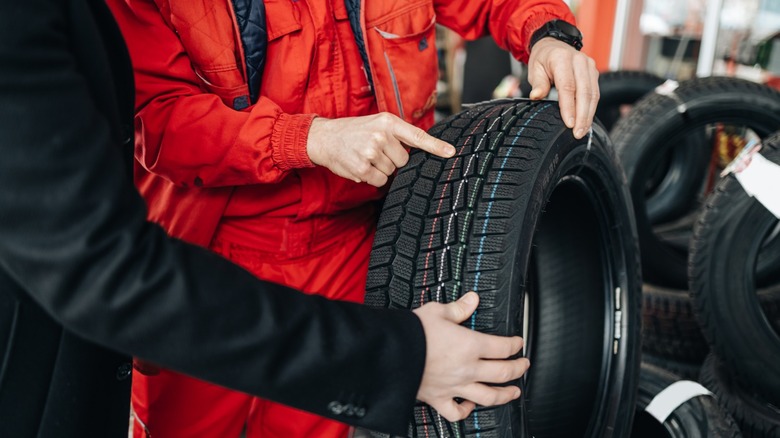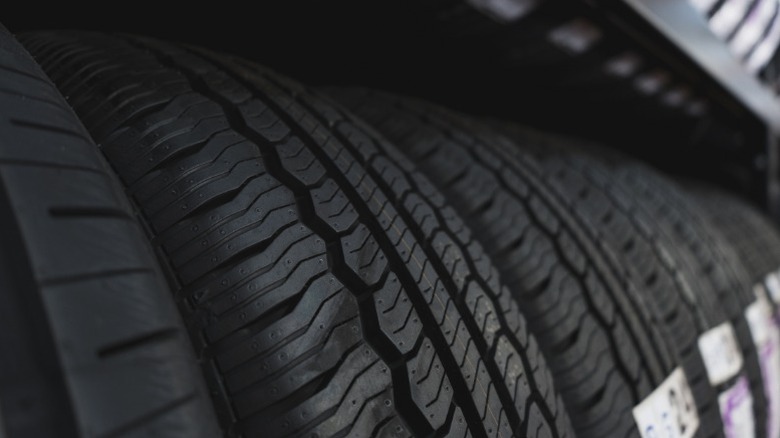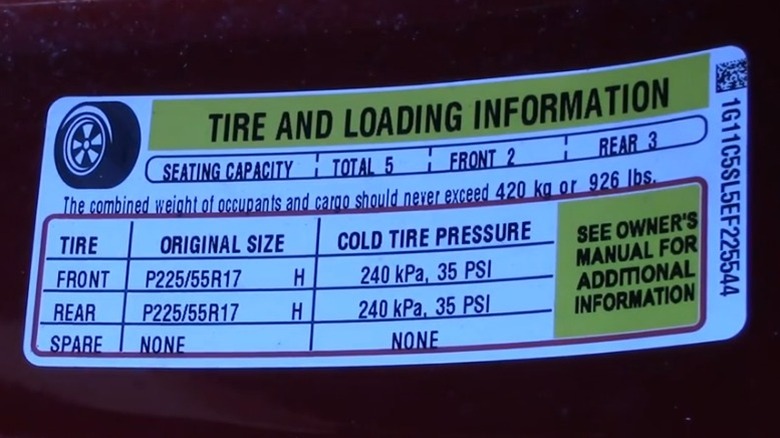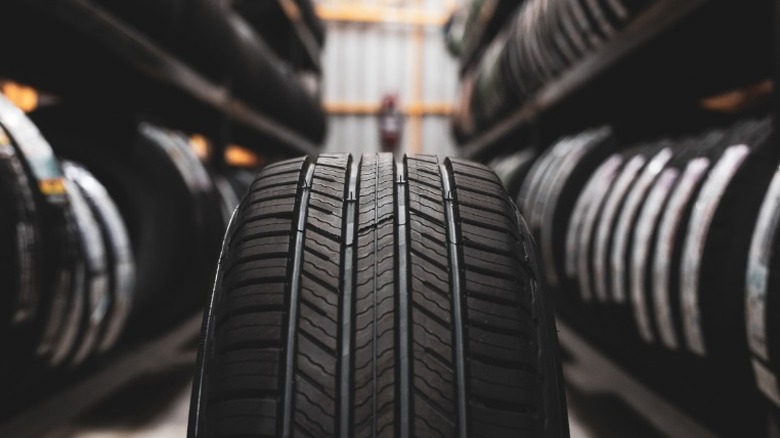Is It Worth Spending Extra Money For Expensive Tires Versus Buying Cheap Ones?
If you've been a car owner for a while, you probably understand that vehicles require a lot of routine maintenance. Those maintenance projects include everything from engine oil replacements to brake changes and drive belt replacements. Most of that work is relatively affordable. However, not all maintenance is cheap. Things like tire replacements are among the most expensive maintenance jobs that you need to perform, with the average cost of new tires ranging from $80 to $250 or more a piece.
Fortunately, new tires should last for an average of three to five years before you need to replace them. That means that tires aren't something you should have to worry about every few months, like oil replacements. However, it's still a large expenditure, and you may be curious about some ways you can cut down on those costs. One method that many people may be tempted to use is opting for cheaper tires in place of more expensive brands.
Cheap tires can be a decent way to save some cash, but they can come with their downsides. For example, cheaper tires may be built with lower-quality materials and may provide a shorter lifespan than those that come with a more expensive price tag. In the long run, that can result in buying tires more frequently, which isn't a great way to save money. If you're interested in learning more about the differences between cheap and expensive tires, stick around. As a former professional auto mechanic who has replaced thousands of tires, I'll break it down for you. Here's everything you need to know about cheap versus expensive tires and whether buying less expensive rubber is worth it.
What are the differences between cheap and expensive tires?
While basically every automotive tire is designed to perform the same essential duties, they're not all created equal. Not only are different tires built for different types of vehicles and driving scenarios, but they can also be constructed with varying degrees of quality and expected mileage ratings. When it comes to differences between the cheapest and most expensive tires, the above-mentioned factors play a significant role.
Cheaper tires may be built with outdated technology or lower-quality materials, and they may offer a substantially shorter lifespan than those that cost a bit more money. However, it's also important to note that some of the most expensive tires are engineered for niche driving activities, like drag racing or off-road terrain. In these cases, buying the most expensive option probably won't make sense, and some high-performance tires can even offer fewer benefits for everyday driving than some of the cheaper options available.
According to most experts, the best course of action is to opt for a reputable mid-range tire. More expensive brands, like Michelin, Continental, Goodyear, and BFGoodrich, are all considered to be some of the best options on the market. However, some of these brands, like Michelin and Goodyear, maintain cheaper subsidiaries, which offer similar quality at lower price points. Mid-range brands, like Cooper (a subsidiary of Goodyear), Riken (a subsidiary of Michelin), and Falken offer cheaper prices than some of the most expensive names on the market while still coming in at a higher price-point than the cheapest brands. Instead of focusing purely on price, it's important to read reviews, investigate a tire's application, mileage rating, and materials, as well as consider the weather in your area and the type of driving you plan to do.
How to know which tires are right for you and your car
When it's time to buy new tires for your car, you may be confused by all of the options, as well as the complex numbers that identify different tire sizes. Fortunately, picking tires for your vehicle isn't as complicated as it may seem. When you visit a tire shop or dealership, the expert employees will be able to help you choose the right tires for your vehicle. However, remember that not everyone who works in these shops holds themselves to the same ethical standards. So, it's still wise to do a bit of your own research.
One of the best ways to determine the correct tires for your car is to check your vehicle owner's manual. You can usually find these manuals inside your car's glove compartment, and they contain valuable information like fluid types and capacities, service intervals, and information about your vehicle's tires. You can also check the placard inside the driver-side door jamb of your car. There, you'll find information about tire psi and size.
Besides knowing the proper tire size, you'll also want to select the proper type of tire. This is where it becomes a bit more confusing, as different tires are engineered for different things. Most people need solid all-season tires, which are designed to handle most normal weather types and climates. However, if you do a lot of off-road driving, or if you live somewhere with harsh winters, you may need specialized rubber. Consulting with the salespeople at the shop is a good way to learn the differences between different tire types. However, remember to pick a reputable shop to avoid scams, and don't forget to do a bit of your own research first to protect your wallet.
Are cheap tires ever worth it?
Now that you understand the primary differences between cheap and expensive tires, you may be wondering if a cheap set of rubber is ever worth it. While most experts agree that you should opt for a mid-range tire instead of going with the cheapest or the most expensive option available, there are scenarios in which you may want to buy a cheaper product.
One of the main reasons some people install cheaper tires is that they're planning to sell the car and don't want to invest in a fresh set of quality rubber. While putting cheap tires on a vehicle you plan to sell may not be the most ethical decision, it can be a quick and easy way to spruce up the car's appearance. Next, if you live somewhere that experiences relatively mild weather and very little rain, buying a cheaper tire may not be the worst decision, depending on your driving habits, that is. If you only commute very short distances on well-paved roads with low speed limits, a cheaper tire may get the job done.
However, if you do lots of highway driving, you should opt for a quality tire brand, even if you live somewhere with impeccable weather. Finally, buying a cheap tire may be the only option available to you. If your current tires are extremely bald or damaged, a cheap tire with new tread may be better than continuing to drive on unsafe bald tires. That said, buying extremely cheap tires is almost never a smart move. For one, they'll most likely wear out much quicker than a more expensive brand. And, more importantly, they probably won't provide the same level of traction and stability that a pricier product can offer, which can lead to unsafe driving conditions.



